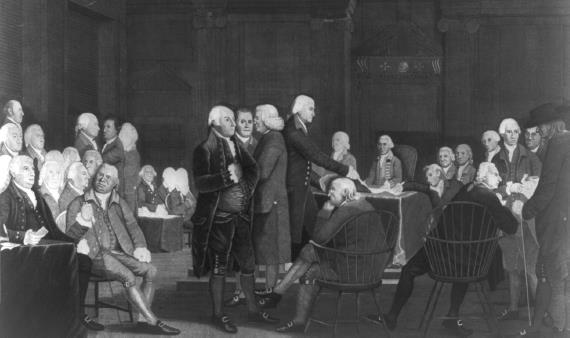Origins of the Presidency and Official DutiesDuties and Powers |
What are the executive and enumerated, or expressed, constitutional powers of the president? |
Article II of the U.S. Constitution vests the “executive power” in the president. The president is commander in chief of the U.S. armed forces and, when called into action, the National Guard. The president may require the written opinion of military executive officers, and is empowered to grant reprieves and pardons, except in the case of impeachment. The president receives ambassadors and other public ministers, ensures that the laws are faithfully executed, and commissions all officers of the United States. The president has power, by and with the advice and consent of the U.S. Senate, to make treaties, provided that two-thirds of the senators present concur. The president also nominates and appoints ambassadors, other public ministers and consuls, justices of the Supreme Court, federal judges, and other federal officers, by and with the advice and consent of the Senate. The president has the power to temporarily fill all vacancies that occur during the recess of the Senate. In addition, the president may, under extraordinary circumstances, convene “emergency” sessions of Congress. Further, if the two houses disagree as to the time of adjournment, the president may adjourn the bodies. In addition to these powers, the president also has enumerated powers that allow him to directly influence legislation. The Constitution directs the president to periodically inform Congress on the State of the Union, and to recommend legislation that is considered necessary and expedient. Also, Article I, Section 7, of the Constitution grants the president the authority to veto acts of Congress.

Artist Robert Edge Pine’s depiction of the Founding Fathers voting on the Declaration of Independence in what is now called Independence Hall in Philadelphia. Declaring a nation’s independence is just the beginning. The hard work was ahead as these men had to determine a new form of government, including what powers its president would wield.
